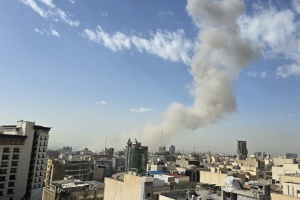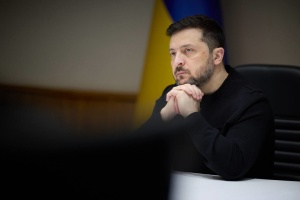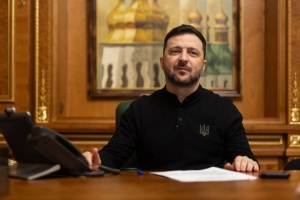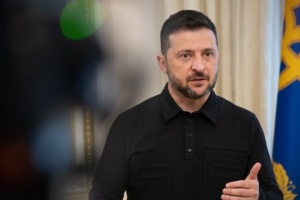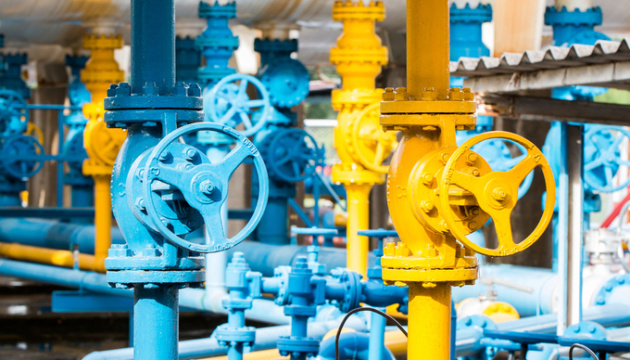
Ukraine will not freeze: Six years without Russian gas
This month, another episode of the 60 Minutes panel show aired on the Rossiya TV Channel – and it was once again dedicated to Ukraine. This time, however, the propaganda show asked the question “Has Ukraine frozen over yet?” How the host presented the issue is unsurprising. But on that note, it is worth explaining what has been happening on the “gas front” between Russia and Ukraine.
How it was
The so-called cheap Russian gas cost Ukraine too much. It was actually not always cheap in the literal sense either. In the period of 2009-2013, it was one of the most expensive options across Europe. Even when “blue fuel” was relatively cheap, according to experts, Russia did not subsidize Ukraine – things were actually the other way around.
Even though about 90% of all Russia’s gas exports to Europe used to pass through Ukraine, it was Moscow that imposed its terms on Kyiv. Meanwhile, it kept portraying Ukraine as a poor relative and one prone to scheming at that. “Ukraine simply ‘steals’ gas or constantly owes money for it,” Ukrainian political scientist Yevhen Mahda described the Russian narrative.
Yet, Russia would grab anything it could reach for gas debts: the Black Sea Fleet, long-range aircraft, missiles, factories, plants, and other industrial facilities. Even the miserable USD 100 discount sealed in the Kharkiv Agreements was effectively the price of Crimea because the accord paved way for further occupation of the peninsula.
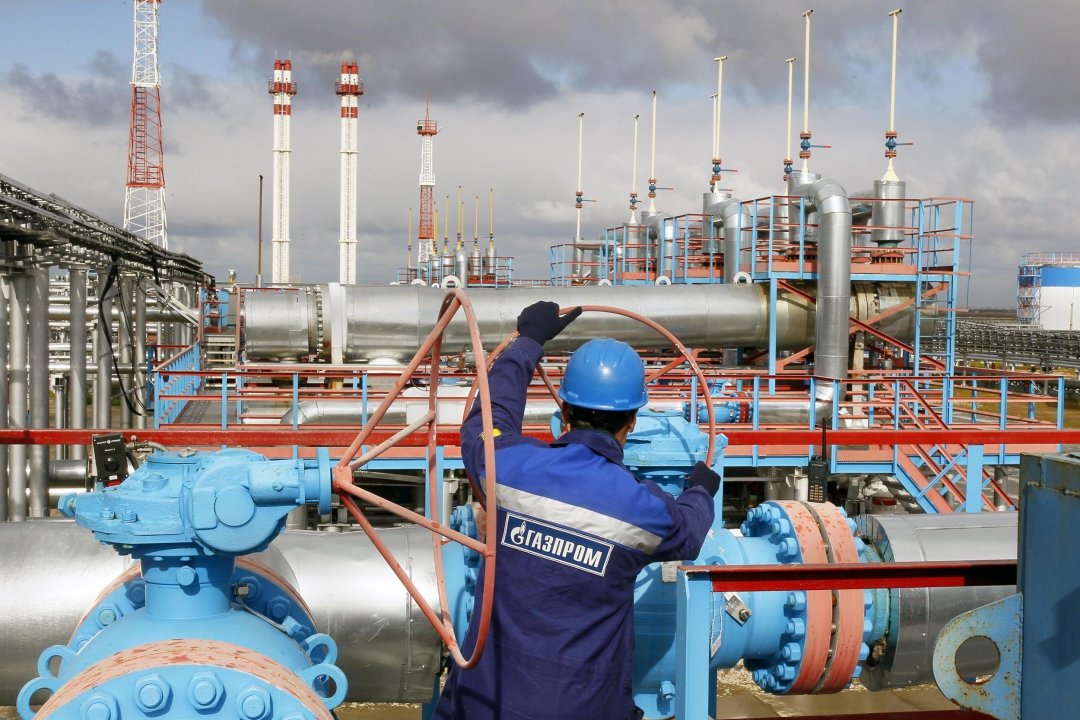
Under the pretext of delivering their “cheap” gas, Russian politicians acted like they owned Ukraine, constantly seeking assets to take over. In addition, they kept threatening they would snatch Crimea, with such comments being voiced not only by some fringe figures, but also by quite prominent officials, such as Vladimir Zhirinovsky or late Moscow Mayor Yuri Luzhkov.
The “cheap” Russian gas has also undermined Ukrainian economy, having made it clumsy and weak. Opaque and sometimes overtly fraudulent schemes of gas supplies have created a massive corrupt group in business and, accordingly, politics, which has eroded the country from within. Corruption and dependence peaked at Russia’s direct interference in Ukrainian politics—an attempt to assign their protégé as president through rigged elections.
When that attempt failed, Russia launched a real gas war, dismantled the pro-European coalition, and forced Ukraine to halt any progress. There is no need to elaborate, how this all ended.
Thus, the price that Ukraine paid for the supposedly cheap Russian gas was dependency and humiliation, economic backwardness, and corruption. Unfortunately, the price eventually became even higher, bringing multiple casualties and loss of territory.
The 2005-2006 gas war ultimately confirmed the fact that Moscow was using gas as a stick, a tool of political coercion, when, after the defeat of their protégé in the election, pressure was exerted almost immediately, threatening to increase prices despite the existing contract. Back then, Russia sought to slander Ukraine through disinformation and fake news, portraying it as the party at fault, just as they are doing today.
To this end, the Russians employed two narratives. The first one was that it was Ukraine that offered to pay more for gas. The second one was that Ukraine somehow “lost” 7.8 billion cubic meters of Russian gas.
Naftogaz of Ukraine urgently debunked the previous fake narrative. However, according to Serhii Lukianchuk, the then head of the company’s press center, the damage has been done: the version about Ukraine being the one seeking to cancel the gas agreements was massively spun across the media space, while the Russian side insisted on it at every point during the gas conflict.
Of course, the “missing” gas was also found, but the tarnished reputation remained so local propagandists used this fake story anyway to further compromise Kyiv. Some were more outspoken than others about the real background of these events. For example, Mikhail Leontiev, the then host of the Odnako show on Russia’s Channel One, said the following: “Ukraine can be returned to a single economic space with Russia, and most of those who live there want it to happen. We just need to help the Slavic brothers get rid of the ‘orange plague.’ And it is very easy to get rid of it – we just need to stop funding then... A relevant joke: gas for Ukraine must cost more than for Western Europe because Ukraine gets it sooner, which means it is fresher.”
The outdated joke concealed plans to effectively put Ukraine’s gas transmission system under Gazprom’s control. It was with this in mind (and with the expectation that Yanukovych will be elected Ukraine’s president) that a contract was signed in 2004 providing for “cheap” gas, but in exchange, Kyiv was supposed to lose its last remaining leverage.
When Yanukovych was not elected in 2004, Russia started putting all kinds of pressure on Ukraine: they raised prices, blocked access to alternative gas from Turkmenistan, and tried to portray Ukraine in Western countries’ eyes as an unreliable partner.
It was exactly 16 years ago, on December 27, 2005, that Andrey Illarionov, who used to be Putin’s advisor on economy, said on the air of Echo of Moscow Radio Station that he was stepping down. He explained why: “I was offered to take part in a war, not as an observer or a descriptor, but as a participant, a propagandist who explains why the decision on raising gas prices and everything that is done in our bilateral relations constitutes liberal economic policy.”
In that interview, Illarionov explained that the conflict had nothing to do with liberal economic policy (and the economy as such), branding Moscow’s actions a “transition to imperialist policies,” comparing them to Nazi Germany’s annexation of the Sudetenland prior to the start of World War 2.
What is happening today
Ukraine has not imported gas from Russia for more than six years already. Throughout this period, Russian propaganda time after time predicted that Ukrainians would roll back to “ice age.”
And when Ukrainian President Volodymyr Zelenskyy called Russian gas “stinky” (which sparked some tantrum fits in Russia), he meant precisely that this gas is densely diluted by politics – imperial politics.
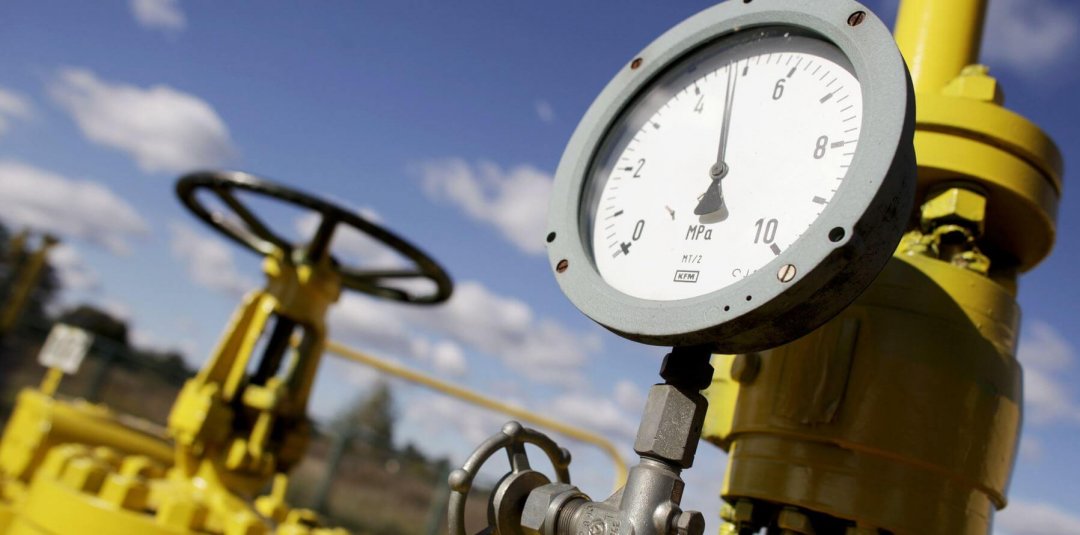
Moscow claims that it is Russia that has allegedly stopped selling gas to Ukraine due to non-compliance, at the same time criticizing Kyiv for not caring about “ordinary citizens” because importing gas from Russia is more feasible. They also portray Ukraine’s refusal to import directly as a whim of authorities.
In reality, however, this “whim” makes so much sense that it wasn’t even Ukraine’s post-Euromaidan governments that went for it but... Mykola Azarov’s government. In 2012, Ukraine received about 13% of gas imports in reverse flows through Germany’s RWE. The European Union Institute for Security Studies then wrote: “The paradox of the Ukraine-RWE partnership is that the gas in question is mostly of Russian origin; by being re-routed via the EU, however, Ukraine benefits from both lower prices and greater freedom vis-à-vis Gazprom.”
Thus, this was a very obvious decision even in the period prior to Russia’s armed aggression and occupation of part of the Ukrainian territories – even for the most pro-Russian government in the history of Ukraine.
Now, as strange as it may sound, Naftogaz of Ukraine has become one of the country’s defense outposts. For example, it is actively trying to oppose the launch of the Nord Stream 2 project, which will allow Russia to supply gas to Europe bypassing Ukraine, and thus get rid of the deterrent to waging war. CEO Yuriy Vitrenko says, “If there is no physical transit of gas through Ukraine, it increases the chances of a full-scale war between Russia and Ukraine with all consequences implied.”
Although Nord Stream 2 AG, started to fill Nord Stream 2 pipes with gas in early October to begin shipments, it is yet to be certified as an independent operator. Naftogaz applied to participate in the process and was ultimately allowed to do so by a German regulator. Thus, Ukraine will be able to influence the launch of the Russian gas (better say ‘geopolitical’) pipeline. Currently, Gazprom is resorting to legal tricks – they are trying to comply with European legislation only partially to obtain the required permits.
Of course, the Kremlin does not like what is going on. Putin is very anxious to finally become a European “kingmaker,” as he was called by Serbian President Alexander Vucic, who recently said that without Russian gas, he would have to “take the rope and hang himself.”
Unlike the Serbian leader, Ukraine was not going to hang itself, instead defending own interests in relations with Gazprom. It has already achieved a major success by securing a ruling of the Stockholm Arbitration Institute, under which Gazprom paid USD 2.9 billion to Naftogaz of Ukraine, as well as by signing a transit contract, under which Russia shall ship gas via Ukraine under a “pump or pay” clause.
Russia is naturally not too thrilled about this turn of events. Vladimir Putin has recently claimed that Ukraine’s GTS had allegedly “not been reconstructed or repaired for decades, so something could burst there at any moment.”
In a recent interview with journalist Roman Tsymbaliuk, Yuriy Vitrenko responded to the claim: “Everything will be fine, and [the Ukrainian GTS] will keep working more reliably than the Russian one, with all their systematic accidents and problems.”
There are also some minor issues emerging, such as the recent attack of Russian bots on Ukrtransgaz’s Facebook page. Prior to that, in 2021, the Ukrtransnafta page (Naftogaz Nafta) was blocked three times. Of course, bot attacks and Russian media provocations are part of the hybrid war that Russia is waging.
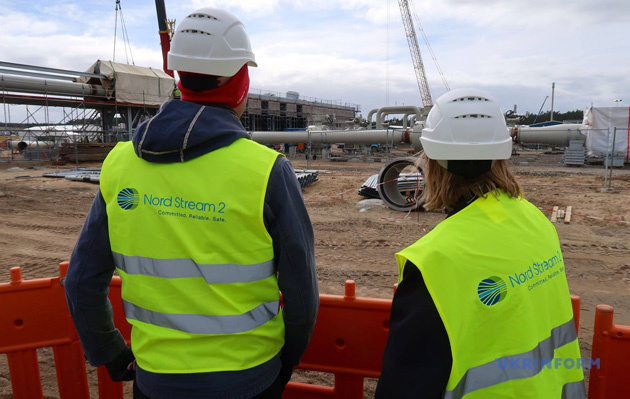
What’s next
The topic of Ukraine’s energy independence remains important. This was reiterated by Volodymyr Zelensky during the “30 questions to the President of Ukraine” press marathon. In particular, he noted that “we now have the number one challenge – the issue of 2025, when the gas transit contract expires. I believe that this will be a difficult moment, and we must quickly implement the reform of thermal modernization,” he said, emphasizing that in the next three years, the amount to be engaged to this end is UAH 100 billion.
In turn, Naftogaz reports that it has launched new large-scale production projects with a potential of 600 billion cubic meters worth of gas reserves.
So we can expect that Ukraine will handle winters just fine no matter what Russia claims.
Center for Strategic Communication and Information Security

